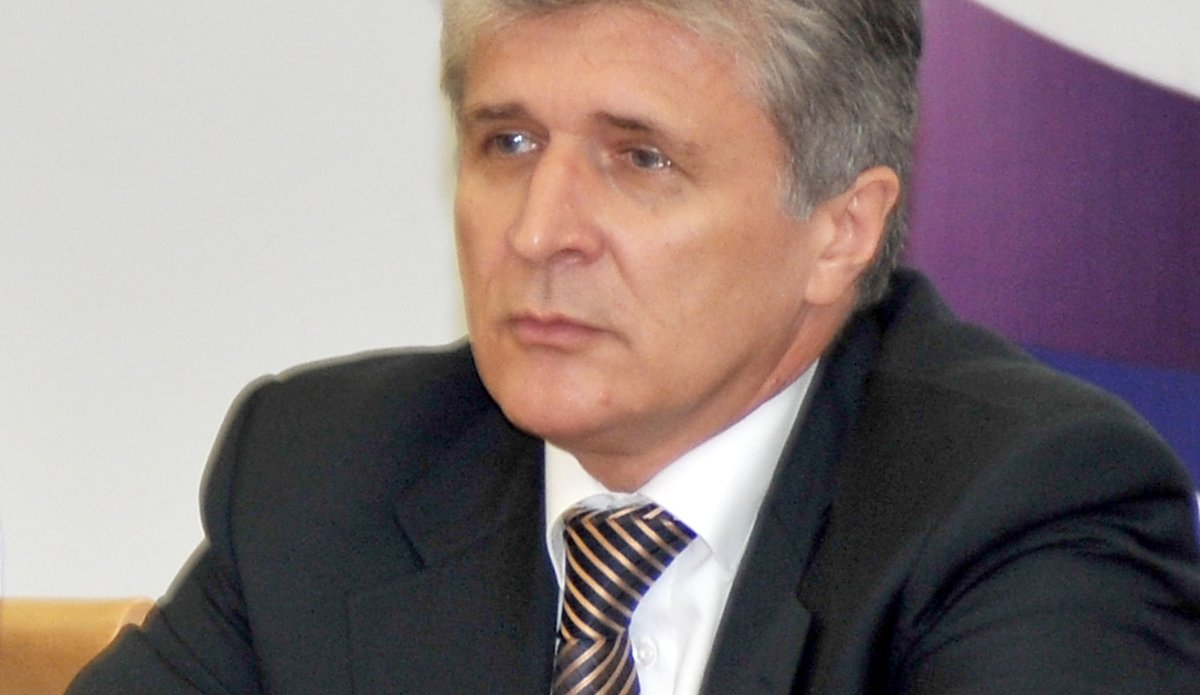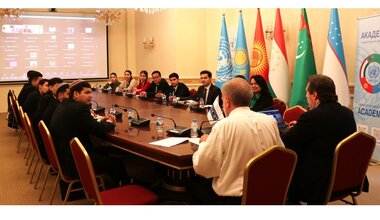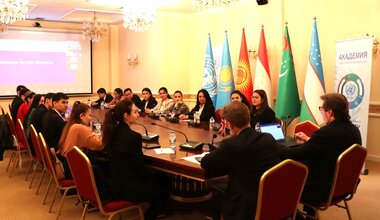Opening remarks by Miroslav Jenča, SRSG and Head of UNRCCA at the Plenary Session of the International Conference "Neutrality and Preventive Diplomacy: Bases for Peace and Stability"
ASHGABAT, Turkmenistan
Dear Mr. President,
First of all I would like to thank you for your warm congratulations on the occasion of the fifth anniversary of the official opening of the Regional Centre for Preventive Diplomacy for Central Asia, and likewise for the high appreciation you gave to our work, and for the tangible proposals for further development of preventive diplomacy mechanisms in the region.
I am also grateful to the leaders of regional organizations present here, in particular OSCE, CIS, ECO and SCO, for their congratulations to the address of the Regional Centre. We highly appreciate the achieved level of cooperation with regional structures which provides a non-yielding basis for the further development of our partnership in the interests of strengthening peace and stability in Central Asia.
Distinguished guests, Excellencies,
Our anniversary coincides with the celebration of the 17th anniversary of the recognition of the status of permanent neutrality of Turkmenistan by the UN General Assembly. In this regard, let me join the statements of others and express my sincere congratulations to the people and the Government of Turkmenistan on this memorable occasion.
It is not a coincidence that we are celebrating our 5th anniversary on the eve of the Neutrality Day. The neutral status of Turkmenistan was one of the key factors to place the Headquarters of the Regional Centre in Ashgabat. And now we all can see increased efforts of neutral Turkmenistan to find durable solutions for many challenges facing the region and the world.
The Regional Centre was established on the basis of a consensus reached among the countries of Central Asia to strive to jointly tackle the multiple threats in their region, including international terrorism and extremism, drug trafficking, organized crime and environmental degradation. This is the first UN structure focused exclusively on regional preventive actions and it can serve as an example for similar efforts in other parts of the world.
Over the past five years the Centre, working in close cooperation with the governments of Kazakhstan, Kyrgyzstan, Tajikistan, Turkmenistan, Uzbekistan and other partners has established itself as a platform for dialogue and a tool for enhanced cooperation for the countries of Central Asia. The Centre has become a recognized partner in the region and beyond, and works to help the countries of Central Asia identify and develop mutually acceptable solutions to existing and emerging problems that can pose a threat to peace and security in the region.
One guiding principle of UNRCCA's work is described best with one word: impartiality. In finding solutions to the region's challenges, the Centre has been taking the interests and concerns of all parties fully into account.
Another guiding principle is innovation. UNRCCA does not and will not insist on pushing blueprint solutions, but rather tries to facilitate local, targeted and tailored solutions through dialogue and negotiations with the countries of the region on issues of concern.
Only these principles can assist in finding durable and mutually acceptable solutions that would ensure long-term peace and security throughout the region. To this end, the Centre also maintains close co-operation with international and regional organizations as well as with UN structures operating in the region. I'm pleased that leaders and senior representatives of many of these organizations are here today.
In the five years since its establishment, UNRCCA has been actively involved in preventive diplomacy efforts across a range of issues of high importance to the region, with the aim of building trust and strengthening cooperation between the Central Asian countries, thus reducing the risk of conflict or, in some cases, the relapse into violence. Together we have been working on the implementation of the UN Global Counter-Terrorism Strategy; exploring best possible ways to address the water/energy nexus; working closely with the UN Assistance Mission for Afghanistan (UNAMA) in efforts to stabilize the situation the country; and equipping a new generation of diplomats and state employees with necessary skills in the area of preventive diplomacy. Today's conference will provide us with an opportunity to take stock of the Centre's main achievements and progress made in dealing with some of the challenges to peace and security in Central Asia.
But we will go beyond this as well, as it is important to look at preventive diplomacy from a conceptual point of view, to assess the lessons learnt and best practices, challenges and prospects in the field of preventive diplomacy in general. The UN is trying to do more to prevent conflicts. The Secretary-General Ban Ki-moon has placed a special emphasis on preventive diplomacy, including it in its key priorities for the second term in office. From that prospective the role that regional structures such as UNRCCA, UNOCA and UNOWA play as part of the international community's response to existing and emerging threats to peace and stability at the regional level is particularly important.
In this spirit I look forward to interesting and fruitful discussions in an atmosphere that is characterized by the hospitality of our Turkmen hosts, and wish our conference success.
In concluding, let me once again congratulate the participants of the conference, the government of Turkmenistan and through it the people of Turkmenistan on the occasion of this holiday - the Day of Neutrality - and wish continued success to all those present in their efforts to ensure peace and stability in the region and around the world.
Thank you!
 UN
UN





